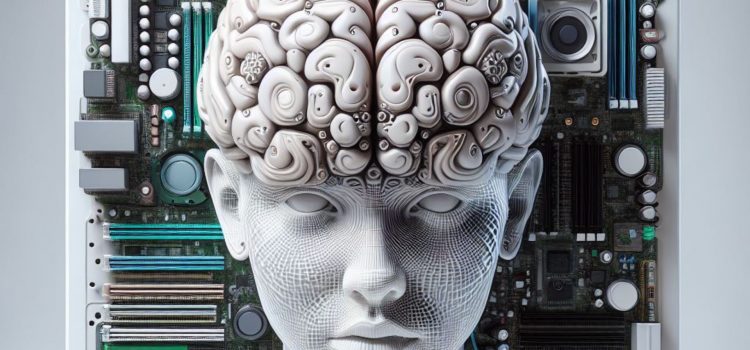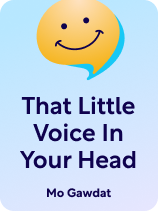

This article is an excerpt from the Shortform book guide to "That Little Voice In Your Head" by Mo Gawdat. Shortform has the world's best summaries and analyses of books you should be reading.
Like this article? Sign up for a free trial here.
How is the brain like a computer? How is unhappiness like a data error?
Mo Gawdat argues that, at its core, the brain is a computer, and its job is to understand the world and tell people how to react. When you feel unhappy, it could be because there’s an “error” in your brain.
If you want to know more about the mechanical workings of your brain, keep reading.
Your Brain Functions Like a Computer
To understand why the brain is a computer, you must also understand how a computer works: First, a computer is given input—for example, the math problem 2×2. Based on the input it’s given, it selects a method to process the information—in this case, the method would be multiplication. Then, it performs the method (multiplication) and communicates the output—4.
Your brain goes through the same process—first we feed it information (inputs). Once your brain receives information, it selects a method to understand (process) that information. Finally, it communicates its findings to you through thoughts (what Gawdat refers to as “that little voice in your head”). Our thoughts trigger emotions, and our emotions cause us to feel either happy or unhappy.
(Shortform note: In How Emotions Are Made, Lisa Feldman Barrett reiterates that emotions stem from the processes our brain uses to understand the world. Thus, we can control our emotions (happiness, sadness, guilt, and so on) by adjusting our mental processes. However, she also notes that many people relinquish control over their emotions and actions by buying into the myth that both emotions and emotional reactions are caused by external stimuli. This misconception has significantly influenced our legal system, often leading to more lenient sentences for violent offenders who claim their act was an emotional response to a trigger.)
Gawdat explains that unhappiness occurs when there’s an error somewhere in this process. The first step in ensuring our brain directs us to happiness is to identify the four main errors that occur during processing—we’ll do this troubleshooting in the next section.
(Shortform note: In Algorithms to Live By, Brian Christian and Tom Griffiths also argue that human brains function like computers—to live better, we should learn how to optimize the code (or algorithms) that run our mind. Using flawed codes results in poor decisions that prevent us from succeeding. However, whereas Gawdat’s “coding solutions” are targeted toward making you happier, Christian and Griffith’s are targeted toward optimizing your brain’s critical thinking. They believe teaching your brain to think critically while preserving limited resources like memory and time will help you better navigate the world and solve problems, ultimately allowing you to live better.)

———End of Preview———
Like what you just read? Read the rest of the world's best book summary and analysis of Mo Gawdat's "That Little Voice In Your Head" at Shortform.
Here's what you'll find in our full That Little Voice In Your Head summary:
- How to understand and program your brain to produce positive actions and emotions
- The four processing errors that cause our brains to produce unhappiness
- Why you should get into the flow state more often






